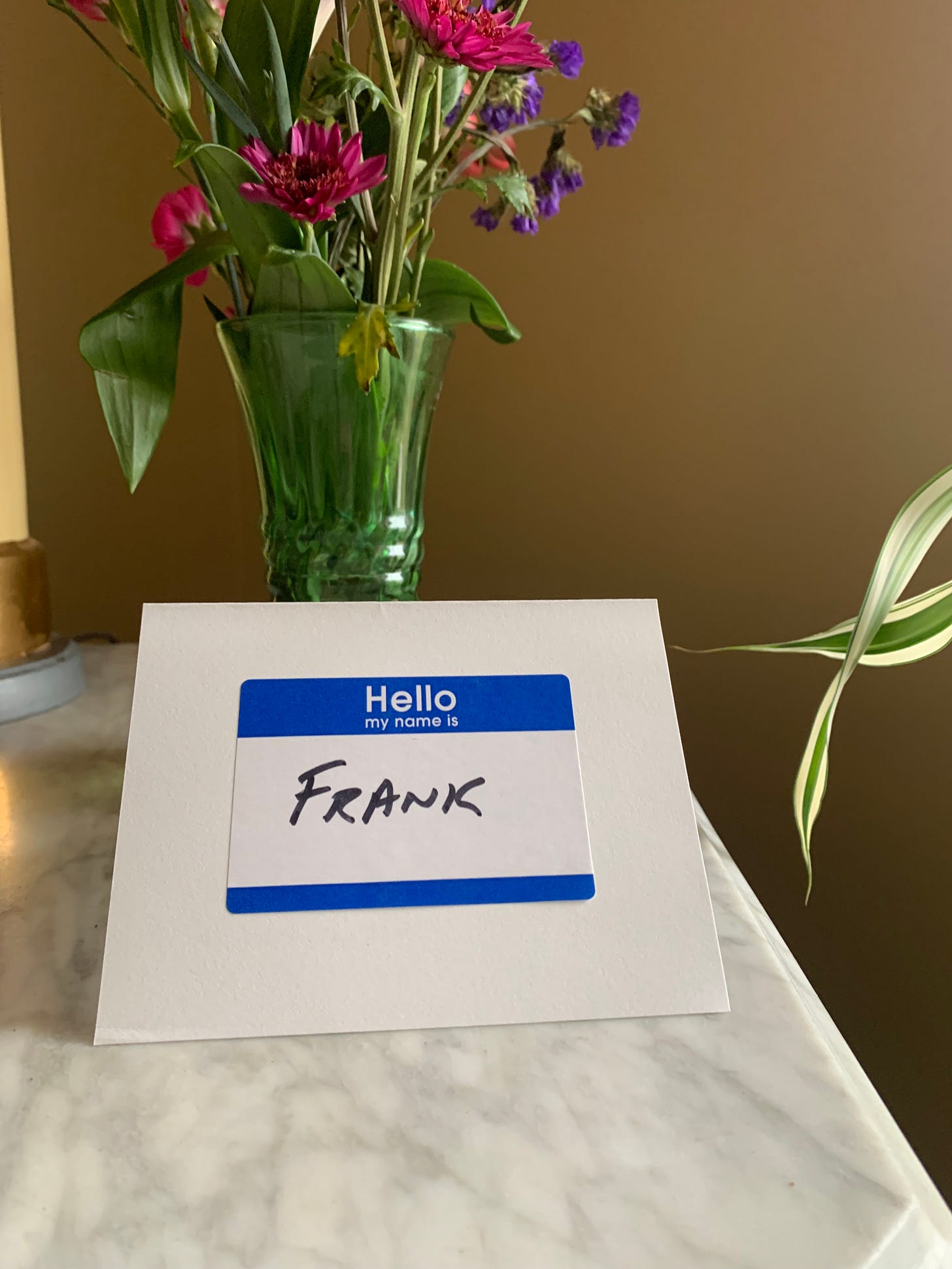052 - Learning and sharing what is actually helpful.
In which I consider starting a grieving card line.
Welcome back (or welcome)!
On this day eight years ago, I started my training as a hospital chaplain. That means I’ve been getting paid for one job title from one employer here longer than any job in my life.
Not that I’ve worked as many hours on this job, of course. I started on-call (PRN) and moved to .6 (three shifts a week) in September, 2016. But for me, it’s a milestone of sorts. I’ve gotten paid for higher education work for longest, church work for second longest, but I’ve been in this place the longest.
And I’m still learning.
+++
Honest cards from grieving people.
The other day, I started thinking that grieving people need a collection of cards to mail to people they know. They would tell people how to be helpful. Or how to stop being hurtful. We could call them grieving cards.
Here are some of the cards we could use:
+++
Outside: If you say “Isn’t it time to move on” one more time,
Inside: I’ll be moving on from you.
+++
Outside: Here’s my phone number.
Inside: It still works even though Louise died.
+++
Outside: (On a nametag) Hello. My name is Frank.
Inside: I wondered whether you forgot his name. You never say it anymore.
+++
Outside: This is hard.
Inside: When you don’t talk about her, it gets harder.
+++
Outside: I’m so glad you got a new cat to replace Trixie.
Inside: That’s not how it works with babies.
+++
Outside: I’m thrilled that everything’s perfect with your life.
Inside: But telling your stories all the time instead of listening with me doesn’t actually help.
+++
Outside: We always hear, “The first year is the hardest.”
Inside: I just wanted to let you know it’s not true.
+++
Outside: Friends are family we choose.
Inside: When a best friend dies, it’s really hard, too.
+++
Outside: A week has 168 hours.
Inside: I’m free for more of them than I used to be.
+++
Outside: I know God has a plan.
Inside: But even if I knew it, it wouldn’t make me hurt less.
+++
Outside: Baseball, hot dogs, apple pie and Chevrolet.
Inside: I still like to talk about the things I used to talk about.
+++
Outside: Grief is a journey, not a problem.
Inside: I need a friend, not a problem-solver.
+++
Outside: I’m sure that’s a great book on grief.
Inside: Sometimes, I need a conversation with someone more than 200 pages from someone.
+++
Outside: Thanks for the casserole.
Inside: Can I have a hug, too?
+++
Outside: Thanks for being concerned that I’m doing too much.
Inside: But the plans I had for my time didn’t turn out like I had expected.
+++
Outside: There’s not a word for people who lose a best friend.
Inside: I mean, beside devastated, or lost, or lonely.
+++
I’ve tried selling cards before and it didn’t work. But feel free to write these on cards of your own. Or share this newsletter with people who might find the messages helpful.
+++
On the podcast: “When a loved one dies, what support do people find helpful?”
On the podcast today, our question is: “When a loved one dies, what support do people find helpful?”
As a hospital chaplain, that’s a question I ask myself often. And others ask me as well.
We want to get it right. We don’t want to mess things up.
I’ve been offering (and receiving) support after the death of loved ones for nearly eight years as a chaplain, twenty years as a clergy member, decades as a human.
But answering questions like this is also part of my academic background. My PhD is in rhetorical theory and criticism. It’s related to communication. Years ago, I taught public speaking. Since then, I’ve taught and written and managed and helped.
I think about choosing words, about the effect of words,
about the way that people will respond to words all the time.
Much to the chagrin of my colleagues sometimes.
I wanted to go beyond my experience and practices to actually ask people about their experience. What do people find helpful at the time of loss?
For more of this, watch on YouTube: What I learned when I asked what grieving people found helpful
Listen and subscribe on Apple podcasts
Thanks for the encouragement and financial support. I’m grateful.
See you next week.
Jon





